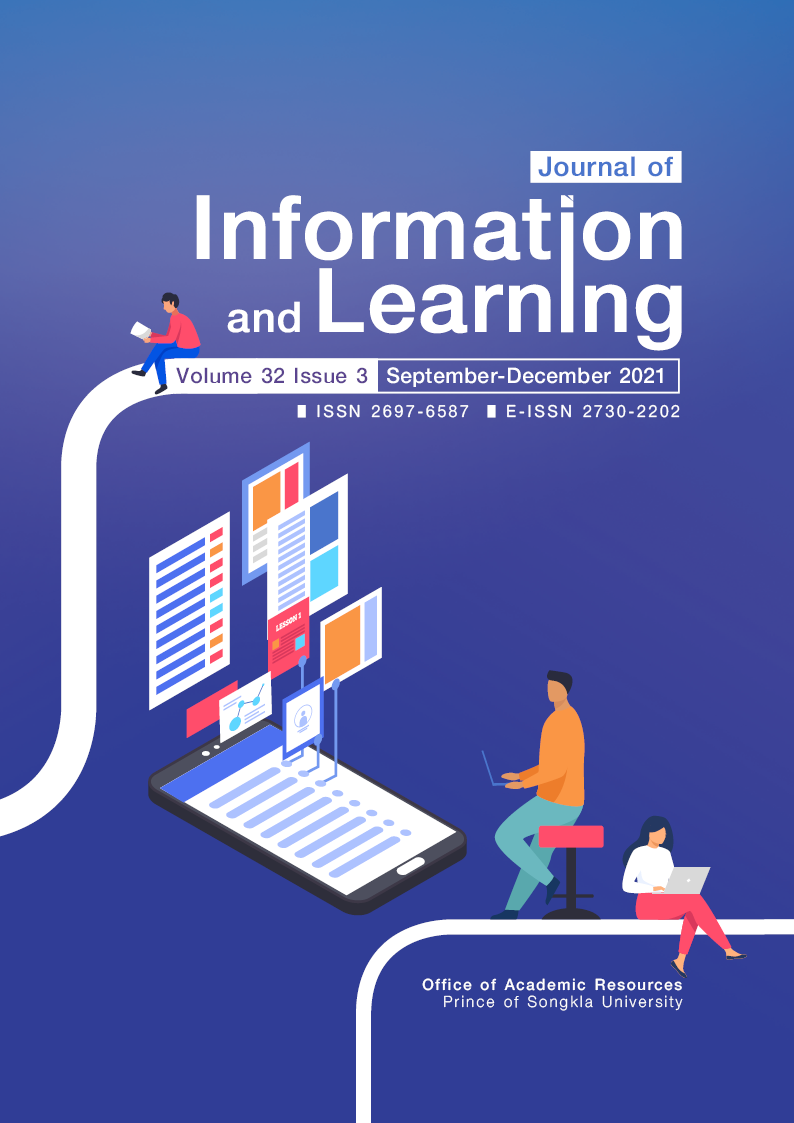A Study of Indicative Behavior and Training Method of Honesty in Elementary Students of National Universities’ Demonstration Schools
Main Article Content
Abstract
This research aims to study the behavioral indicators for honesty of primary school students under autonomous universities and to study the methods of cultivating honesty in primary school students of schools affiliated with autonomous universities. Quantitative and qualitative methods were both used to collect data from 210 participants consisting of school administrators, grades 1-6 homeroom teachers, and grades 1-6 students. Research tools were a questionnaire, interviews, and group discussions. Descriptive statistics and content analysis were used for data analysis.
The results showed that Grade 1-6 students had a point of view, attitude, and behavioral indication and the meaning of honesty in the same way. They differed in the behavior of expression, knowledge and experience gained in the field of cultivating and promoting honesty among students. The homeroom teacher has instilled and fostering honesty among students by teaching honesty through homeroom, honoring and admiring students, honest outsiders, being a role model for students, instilling honesty through teaching in responsible subjects, assigning students to practice honesty or use it in daily life, assigning students to brainstorm ideas on situations, issues, or news and having students act through simulated or fictional situations.
Article Details

This work is licensed under a Creative Commons Attribution-NonCommercial-NoDerivatives 4.0 International License.
The Journal of Information and Learning is operated by the Office of Academic Resources, Prince of Songkla University. All articles published in the journal are protected by Thailand copyright law. This copyright covers the exclusive rights to share, reproduce and distribute the article, including in electronic forms, reprints, translations, photographic reproductions, or similar. Authors own copyrights in the works they have created as well as the Office of Academic Resources. The Journal reserves the right to edit the language of papers accepted for publication for clarity and correctness, as well as to make formal changes to ensure compliance with the journal's guidelines. All authors must take public responsibility for the content of their paper.
References
Bandura, A. (1986). Social foundations of thought and action: A social cognitive theory. Englewood Cliffs, NJ: Prentice-Hall.
Bunchongkien, T. (1982). An experimentation on teaching honesty to children at different stages of cognitive development through group dynamics (Master's thesis). Srinakharinwirot University, Bangkok.
Bunsawang, J. (2000). A study of Prathom Suksa V students honesty through folktales and lullabies used in teaching Thai (Master's thesis). Sukhothai Thammathirat Open University, Nonthaburi.
Carr, D. (2014). The human and educational significance of honesty as an Epistemic and Moral Virtue. Educational Theory, 64(1), 1-14.
Chichang, W. (1993). A comparison between role playing with and without scripts against honesty of Matthayom Suksa 1 students at Ban Pranwibul Wittaya School, Srisaket (Master's thesis). Srinakharinwirot University, Bangkok.
Department of Academic Affairs, Ministry of Education. (1982). Kānsưksā kēn pakati khō̜ng radap phatthanākān thāng čhariyatham læ ʻongprakō̜p thī mī phon tō̜ kānphatthanā kān thāng thāng čhariyatham [A study of norms of ethical development level and its constituents affecting ethical development]. Bangkok: Kansatsana Printing.
Erikson, E. H. (1963). Childhood and society. New York: Norton.
Freud, S. (1964). Group psychology and the analysis of the Ego Sigmund Freud. New York: Bantam Books.
Kajonrungsilp, S. (2007, March 18). Rư̄ang yai ! dek mai sūsat [Important event! The child is dishonest.]. Retrieved from http://www.moe.go.th/moe/th/news/detail.php?NewsID=16911&Key=news_research
Khalil, E. L. (2004). What is altruism?. Journal of Economic Psychology, 25(1), 97-123.
Khootrakun, S . (1990). Čhittawitthayā kānsưksā [Educational Psychology]. Bangkok: Chulalongkorn University Press.
Kohlberg, L. (1964). Development of moral character and moral ideology. New York: Holt Rinehart and Winston.
Ministry of Education. (2008). Laksūt kānsưksā naphư̄n thān Phutthasakkarāt 2008 [Basic Education Curriculum, Buddhist Era 2008]. Bangkok: Kurusapa Printing Ladphrao.
Ministry of Education. (2010). Laksūt kānsưksā naphư̄n thān Phutthasakkarāt 2008 [Basic Education Curriculum, Buddhist Era 2008]. Bangkok: The agricultural Co-operative Federation of Thailand., LTD Printing.
Mitraawong, B. (2003). Moral and ethical development of integrity of class students Mathayom 3, Khwao Rai Suksa School Kosum Phisai District Maha Sarakham Province (Master's thesis). Mahasarakham University, Mahasarakham.
NIDA Poll. (2016, August 29). Sathānakān khunnatham khō̜ng sangkhom Thai [The moral situation of Thai society]. Retrieved from http://www.nidapoll.nida.ac.th/index.php?op=polls-detail&id=427
Nimtho̜ngkham, K. (1999). Variables related to honesty among junior high school students Saint Joseph Convent School Bangkok (Master's thesis). Srinakharinwirot University, Bangkok.
Office of the Education Council. (2017). Phǣnkān sưksā hǣng chāt Phō̜.Sō̜. sō̜ngphanhārō̜ihoksip-sō̜ngphanhārō̜ičhetsipkāo [Thailand Education Scheme in Brief Buddhist Era 2017-2036]. Bangkok: Prigwhan Graphic Printing.
Office of the National Anti-Corruption Commission. (2003, February 3). Kān sœ̄msāng ʻudomkān khwām sūsat sutčharit hai kǣ yaowachonnai sathān sưksā [Strengthening the ideal of honesty for youth in educational institutions]. Retrieved from http://www.moe.go.th/honest/
Piaget, J. (1932). The moral judgment of the child. London: Routledge Kegan Raul.
Rose-Ackerman. (2011). International handbook on the economics of corruption, vol I. MA: Edward Elgar.
Sitho̜ngwatthana, S. (2006). Handbook for developing honesty for students in primary 4-6 (Master's thesis). Srinakharinwirot University, Bangkok.
Watanachai, K. (2014). Rkhunnatham chūai kan sāng khondī hai bānmư̄ang [Moral school help equipping good people for society]. Bangkok: Thanathat Printing.


